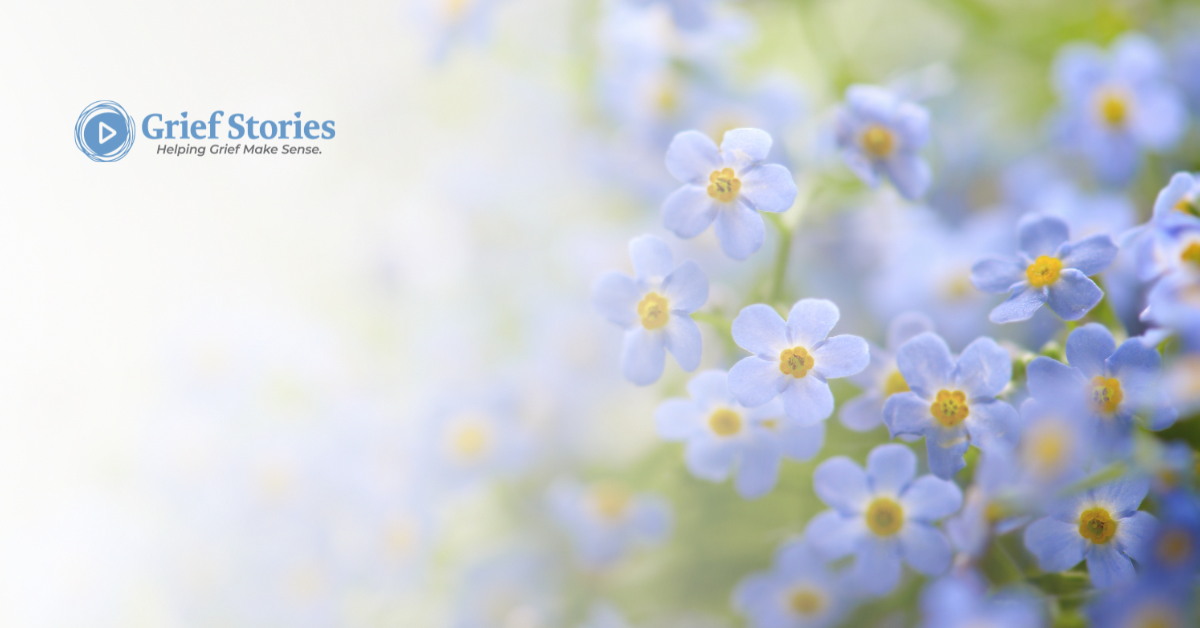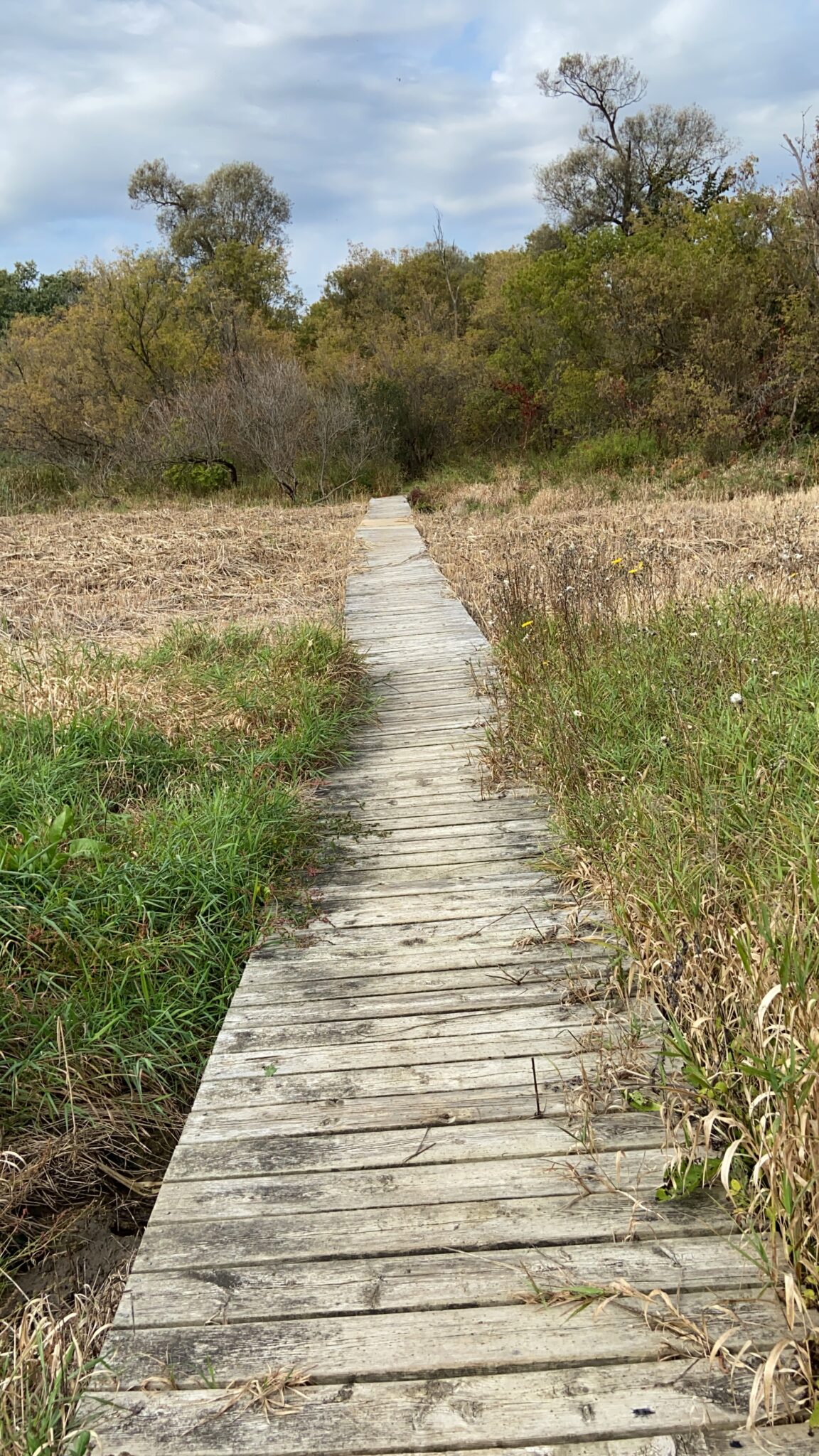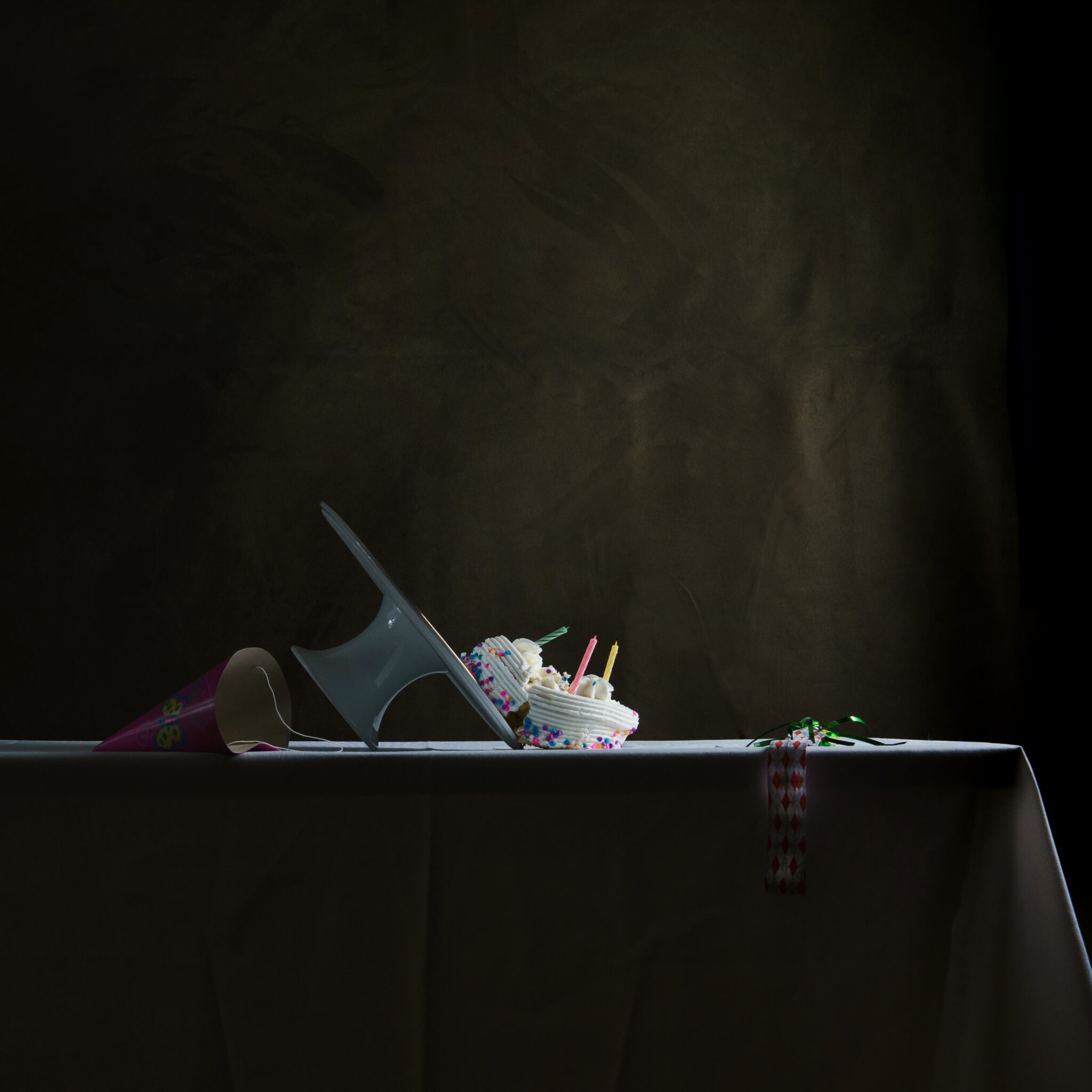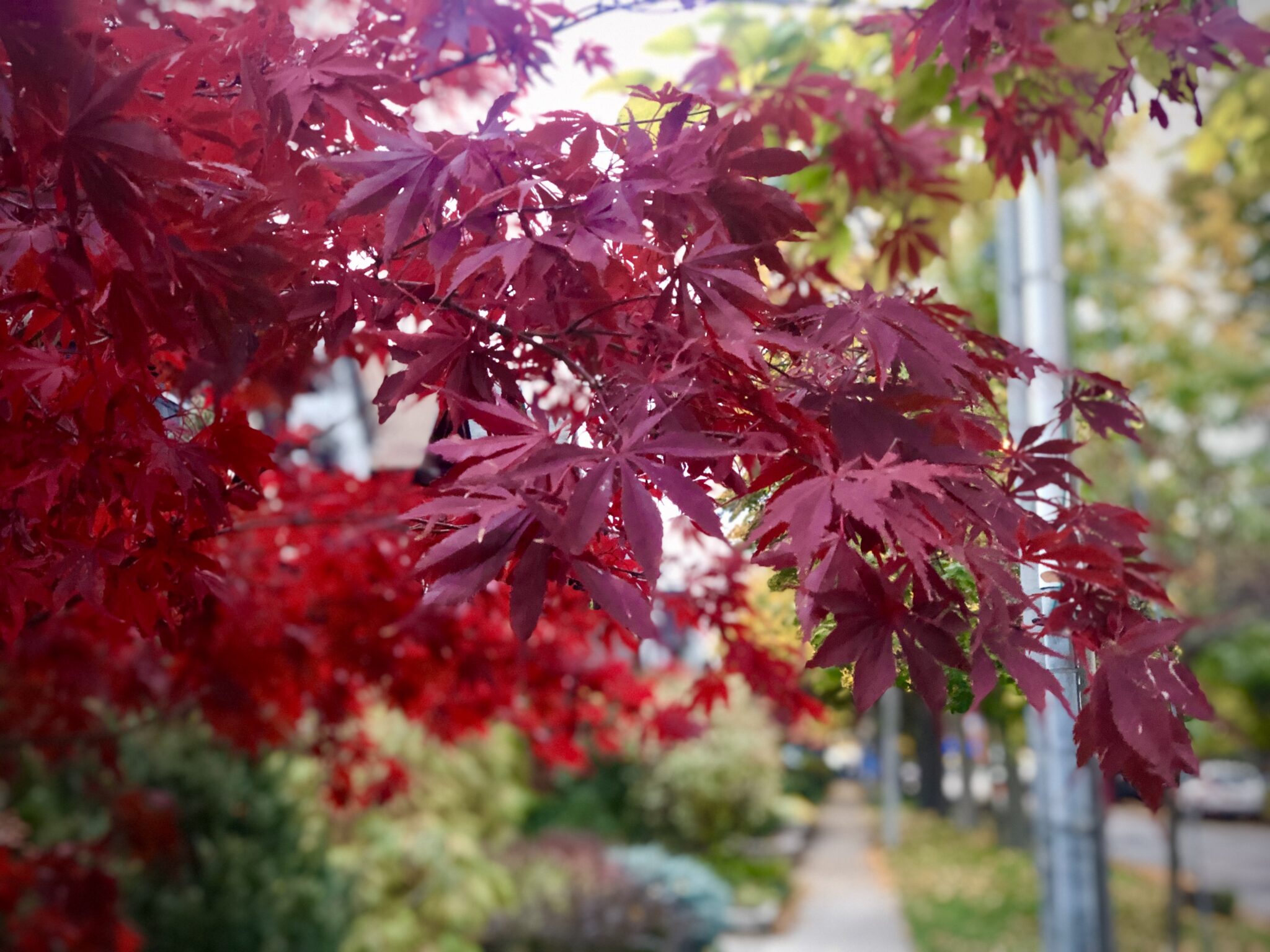Posts Tagged ‘grief process’
Creating Mother’s Day Traditions as a member of the Dead Mom Club
About a week after Easter this year, I noticed I was starting to feel off. My sleep wasn’t as restful, experiencing tension in my body, at times I was getting irritated with the simplest things. Then while streaming an episode of television, 4 ads back to back all talking about Mother’s Day. Then came the promotional emails, the store displays, and even a banner at the top of my Microsoft Word app directing users to their Mother’s Day templates.
Each year, my relationship with Mother’s Day has changed and it will likely continue to transform for the rest of my life. Early in my grief, I avoided any reminders. It was so difficult to work my part-time job in high school with Mother’s Day displays all around me, hearing about patrons’ plans, and then being asked how my own family would celebrate. I would feel my grief weigh heavily on my body, wanting to sleep until June 1st if I could. My first few Mother’s Days were about survival mode, and getting through my waves of grief.
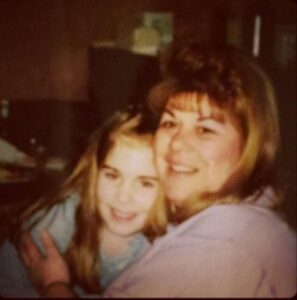
Photo of Jessica and her mother, facing the camera and smiling.
I’m not crushed by my Mother’s Day grief these days in the same way, but I know it is a time of year for me when my grief can show up more. Thoughts about what she would think about streaming platforms; the things I want to tell her; the things I want to thank her for. As my grief has changed these past 18 years, I’ve written letters to my mom, worn pieces of her jewelry, visited her gravesite, bought and written a Mother’s Day card she would have liked, and made some of my favourite childhood recipes of hers.
I would spend many of my Mother’s Days with my grandmother, my mom’s mom as I knew that day held its difficulties for her too. As my grandmother’s health declined over the pandemic, I wasn’t always able or allowed to visit with restrictions. After she died in 2021, I was in a fog by the time Mother’s Day 2022 came around. It felt surreal to me, that on my mother’s side – there are no longer any living maternal presences in my life.
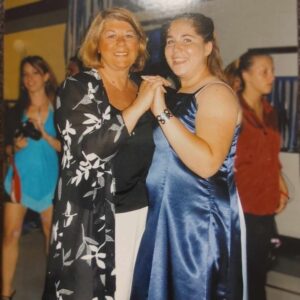
Photo of Jessica wearing a blue satin dress and her mother wearing a long black and
white floral jacket , holding hands as if they are dancing for the camera.
Last year, a friend and another member of the Dead Mom Club were talking about how much this time of year can impact us. These conversations led to something surprising, and beautiful, but also a new tradition that I look forward to engaging in this year. Last Mother’s Day, we had dinner at a nice restaurant downtown, dressed up, and spent an evening talking about our moms. I wore a skirt that belonged to my grandmother and some jewelry that belonged to my mom. My friend also shared items they were wearing or keeping with them that reminded them of their mom. We laughed, we cried, we hugged. It was so cathartic to talk about the things some of our other friends couldn’t quite understand. At times dreading that 2nd Sunday in May, I now know that I can hold space for the difficult emotions that may arise and that I can also look forward to it. To look forward to having dinner with a dear friend, to holding space for the joy, love, and grief we have for our moms, to feel a little less alone on a day that can feel isolating as the rest of the world celebrates it.
_____________________________________________________________________________________________
By Jessica Milette, MSW, RSW . Grief Stories Healthcare Consultant
Jessica is a registered social worker and owner and of Cultivating Connections. Her expertise includes helping individuals and families facing anticipatory grief, ambiguous loss, disenfranchised losses, and sudden deaths. Jessica believes in the power of connection; within ourselves, with those who have died, those we are in relationship with, and with our greater communities. Through sharing our stories of grief and loss, we tend to our connection with those who have died and creating connections with others.
Jessica is a white woman living on the traditional territory of the Anishnabek, the Haudenosaunee, the Attiwonderonk, and the Mississaugas of the Credit peoples, also known as Guelph, ON.
Grief and Disability: Carrie’s Story
By Carrie Batt, Grief Educator
My son says I am a mover and a shaker. He tells his friends that because of my extensive travels abroad and my volunteering. When his friends ask: “Why did she do that?” he always tells them “Because my mom believes that ‘anything is possible’.” As I look back on my journey, I know where I picked up this motto. When my baby brother was born, the doctors told my parents: “he will not walk, talk, nor know who you are”. From that day on my parents embodied that motto ‘anything is possible’ and in the end my brother does far more than walk and talk. This circumstance introduced me to the disability community knowing that people with disabilities deserve and can do more. Interestingly, I have had the privilege of working within the developmental sector in a variety of positions for more than thirty years.
In 2018, I added to my parents’ motto ‘anything is possible’ and included ‘everyone is worth it’. I added those words to the motto right after I had attended a kintsugi workshop offered by Rami Shami, a prominent member within the deathcare community. As soon as I realized that Rami had spent the last 30 years caring for the dying. I inquired about his experience in death, dying and disability. Rami unfortunately, had no experience in supporting people with a disability who were dying. Upon learning about the sheer lack of support and expertise on this topic, I proceeded to complete the end-of-life training with Beyond Yonder Community Deathcare program. Soon after, SEOL Care was created, which offers a disability-sensitive approach to death, dying, and disability.
It has become clear to me over time that we have much work to do to ensure the delivery of disability-sensitive grief literacy and grief support. In March of 2022 my proposal for four 1-hour sessions was approved, we provided the program for 20 participants. My heart was full in each session.
My heart remains full of hope that conversations, education, and expertise about disability sensitive end of life care and grief support will gain momentum as more and more people join in on this vital conversation.
Currently, there are several rays of hope that suggest grief education and support can and will be offered in a more inclusive way. As a certified grief educator, I now offer online disability-sensitive grief support services for individuals and groups. My employer is offering disability-sensitive grief literacy sessions. The Bereavement Ontario Network has shared information through their newsletter and in a network webinar, where the gentleman I support and I were the guest speakers. Bereaved Families of Ontario have been receiving multiple requests to provide grief resources for the neurodivergent community. Additionally, Bereaved Families of Ontario are seeking out speakers with lived experience related to grief and under-represented communities for their grief literacy series. I remain grateful knowing that these are hopeful times, and these examples are a positive step in the right direction.
Birthdays, Anniversaries, and Other Special Days
Rachel Herrington – Social Service Worker Graduate, Third Year Psychology Student, Equal Rights and Community Advocate
It has been 10 years since my grandmother passed away and it never fails, every year leading up to her birthday I spend weeks with a pit of sadness and remorse in my stomach. I spend my days feeling this way and not understanding why then something makes the date catch my eye and it hits – It’s her birthday.
When we are grieving, some days are more difficult than others. Grief comes in waves like the sea and can feel like an intertwining labyrinth of emotions. Birthdays, anniversaries, and special dates that are associated with our loved one who has died can contribute to more emotionally intense days which can be worsened through the anticipation and “what ifs” of the upcoming day. These difficult days can leave us feeling defeated and it can almost feel like we’ve taken two steps backward in our grieving process, but grief does not have a timeline, and these feelings of setbacks are opportunities for healing.
Before the Day:
Communicate and set boundaries with others – think about how you want to approach the day and share your wants, needs, and desires with others. Clearly communicating your wants and needs with others will allow the opportunity for you to set the expectation for the day which can help relieve the intense feelings of anticipation.
Remember there is no right or wrong way to celebrate special days – It is important to remember that there is no right or wrong way to grieve and there is no written code or rule on how these special days are to be approached. However you decide to approach the day is the right way.
On the Day:
Allow yourself the opportunity for space from others – it is important to allow there to be an opportunity for you to step away and have a safe space to feel your emotions if you need to. If you are attending someone else’s home for the occasion plan a way that you can step away or leave with ease if you need to.
Find something that grounds you when intense emotions arise – if intense emotions are arising it can be helpful to find something to help ground you in the moment. This could be a physical item such as a small trinket in your pocket that you can hold, squeeze, and focus on in your hand, or it can be through positive mental imagery, deep breathing, and/or stress relieving acupressure, etc.
Take deep breaths – practicing deep breathing can help reduce stress and can increase resiliency during highly emotional or stressful situations.
If things don’t go as planned, that is okay – grief is a process with no timelines or set of rules, and sometimes things do not always go the way we plan and that is okay. Allow yourself time, patience, and understanding while you adapt to living with your unique grief experience.
The Unique Wounds of Ambiguous Loss
Post by Maureen Pollard, MSW, RSW
The Unique Wounds of Ambiguous Loss
Ambiguous loss, as it relates to death, happens in two ways.
A loved one may be physically absent, missing and potentially dead, but without definite evidence to confirm a death.
A loved one may be mentally absent due to conditions like dementia or other circumstances near the end of life that make them inaccessible to us even though they are physically still alive.
In either circumstance, family and friends are impacted by the absence of a formal acknowledgement of loss that begins an outward, expected grieving process. Instead, there may be an on-going dance between anticipatory grief, and the possibility of hope.
According to the work of William Worden, the tasks of mourning include a need to accept the reality of death. When you do not have the chance to view a still body, to touch a cheek one more time, and come together with others in a gathering to honour the deceased, it can be difficult to find a way forward. Similarly, when your loved one has good days and seems bright and well, it may be hard to accept the truth of a terminal diagnosis.
In either scenario, it’s common to seek information and it’s unusual to find definite answers. The ambiguity creates a storm of mixed emotions quite different than the experience of other death that is as clear and complete as it is heartbreaking. Denial is a common experience. It can be easier to avoid the facts when the situation is uncertain.
Denial can prevent families and friends from adapting to the situation. The unresolved situation of a missing person can leave people stuck, afraid to move on for fear of letting their loved one down. In the case of a family member becoming absent through such conditions as dementia, or decreasing consciousness, denial may mean that people miss the opportunity to be present, to appreciate the person who is dying and to say a meaningful goodbye. Either way, the wounds of ambiguous loss linger, difficult to heal as the mourner struggles with questions and regret.
Healing through ambiguous loss involves the ability to redefine a relationship with the person in their absence. Sometimes this involves adapting how you think about them and other times it involves actions you take to respond to the difference in how things are now. Once you have gathered as much information about the situation as possible, you can begin to make choices about how you will think and act in relationship to this difficult situation.
There is no one right way to adapt to ambiguous loss. Each person must gather relevant information about their own situation, and then set boundaries that help with adjustment. If you face such circumstances with someone in your life, be sure to hold yourself with deep compassion as you move through these steps and tend to your own needs. It will not always be this way. You can make meaning and find hope through your thoughts and actions in such a way that will allow you to rest as easy as possible even under such circumstances.
Guilt and Remorse in Grief Work
Guest post by Sharron Spencer, SSW-G, RSSW
Sharron Spencer is a Registered Social Service Worker working in the field of Mental Health & Addictions since 2014, as a second career. Sharron currently works as the Grief & Bereavement Coordinator at Hospice Georgina. She trained in the Child & Youth Grief and Bereavement Certificate program with Sick Kids Mental Health/Hincks Dellcrest, and is nearing completion of a degree in Thanatology (the study of death, dying and bereavement) with Western University. Sharron is a training facilitator with PalCare Network of York region; providing palliative education programs to volunteers and professionals in Spirituality, Grief & Bereavement and Care for the Caregiver and also a certified facilitator of Powerful Tools for Caregivers. Sharron is also a Certified Funeral Celebrant.
Most of us don’t think about our own mortality. Often, it isn’t until we are affected by a diagnosis or sudden death personally that we have to learn how to cope with the shock, fear, anger, sadness, guilt, numbness and many other emotions that result from a death, or dying. We have become a death-denying society that resists all things related to death and dying. Our loved ones are cared for in hospital and their bodies are cared for by the funeral homes. In many ways we don’t know what or how to grieve.
When diagnosed with a life threatening illness, one is often filled with guilt and regrets; their lifestyle, choices they made, becoming a burden to others who will need to help provide care, leaving a family without an income and many other thoughts cross their mind.
Children and youth may be left with guilt and remorse after the death of a parent or other family members. They may believe they caused their loved one to become ill because they didn’t ‘behave’ the way they were asked to, or they may feel terrible because they fought with the person, or they didn’t spend enough time with their loved one because they didn’t really believe they were gong to die. It’s important to explore these possible thoughts and feelings with children and youth, helping them understand the death in an honest, age-appropriate way. This can help prevent them from imagining worst-case scenarios where they are to blame.
A caregiver to a loved one with a disease such as dementia can be filled with guilt for being exhausted and feeling resentful towards their loved one due to the amount care and attention that is required. They may also feel guilt for grieving the loss of their hopes and plans that have been lost due to the illness.
Guilt and remorse can overwhelm us whether we are grieving the death of someone we love or facing the end of our own life. These feelings are normal and very common. The trick is to not let the guilt take over and stop you from grieving your losses.
When we must watch someone we care about as they suffer and decline, we may feel helpless. That powerlessness can turn into guilt that we weren’t able to “fix” things. Even when we understand logically that there was absolutely nothing that we could’ve done differently, our heart takes on this guilt. Professional help can help you find self-compassion and forgiveness.
It can also be therapeutic to write a letter to our loved one who has died. Write about your feelings, including the guilt and the remorse. I often suggest to people to burn or shred the letter to release the guilt, shame and remorse. These painful feelings don’t serve you and won’t change the outcome. You can let them go and trust that you did the very best you could for your loved one under the difficult circumstances you faced at the end of life.
When Death is a Natural Part of Your Workplace
Post by Maureen Pollard, MSW, RSW
When Death is a Natural Part of Your Workplace
Staff and volunteers in hospice, long-term care facilities and hospitals know that death is a part of life. You typically witness death on a regular basis as part of your job. As a result, there are some important steps you can take to engage in self care and look after yourself when loss and grief are a part of the emotional landscape in your workplace.
Consider your personal experience of loss.
Self awareness is helpful as we reflect on events in our life, our personality and our actions. Think about family and friends who have died. Reflect on your grief. How did you feel? What did you do to honour the loss? Was there something that helped you cope with your grief?
Honour your relationships.
When death is part of your work, you become good at dealing with the practical aspects. Loss of life may be business as usual, and your training, skill and experience allows you to do what is necessary and then move to the next tasks. As a result, it can be surprising when a death happens that touches you. Remember that grief is really about relationship. It’s natural to feel more attached to some patients because of a personal connection that develops as you care for them over time or because they remind you of someone you love. When you have some relationship with the person who died, you’re much more likely to need a bit of time to process your grief.
Be aware of the impact of accumulation.
It may be that very few of the workplace deaths you encounter feel personal. As a result, you become very good at moving through the tasks of caring for the dying and coping with death. This is a normal development as you gain experience in the field. However, it may come to pass that you feel the weight of the number of deaths you attend to over time. This is also a normal occurrence. It’s as if each death is a rock you place in the backpack you carry. On it’s own, one rock is not too heavy to carry. Eventually a backpack full of rocks becomes impossible to lift. It’s important to have healthy ways to express your feelings and release these “rocks” now and again throughout your career.
Feel it, then heal it.
When grief comes to you, whether it is in your personal life or due to deaths you experience in the course of your work, take the time you need to mourn. Each death will bring a range of unique feelings. Some will take a long time to mourn and others will be a small diversion on your path. When you honour each loss according to the depth of love reflected in the relationship with the person who died, and take time to heal, it increases your capacity to carry on in your work as an excellent professional caregiver.
Ways to Mourn During the Pandemic
Post by Maureen Pollard, MSW, RSW
Ways to Mourn During the Pandemic
The restrictions related to the global pandemic are intended to slow the spread of covid-19. Physical distancing, the declaration of a state of emergency and rules to prevent gathering in groups also impacts our usual ways of coming together in bereavement.
It is customary for immediate family and close friends to attend for final visits if the death is expected. After death, there are many rituals, ceremonies and customs that involve gathering together to remember, honour and celebrate the person who has died. When you can’t gather to comfort one another, there are still many ways you can mark the death of a loved one.
Use Technology
You can schedule on-line video sessions using FaceTime, Skype, Zoom or other platforms to host virtual gatherings at times when the bereaved would normally be offered condolences and comfort in person such as a visitation, a wake, shiva or other mourning traditions. Similarly, it is possible to use livestream technology to invite family and friends to observe any private ceremony or service that is allowed for the immediate family. This technology has been available through funeral officiants in the past, and during the pandemic it has become a much more familiar experience as such technology becomes the only safe way to attend and offer sympathy and support in the immediate aftermath of a death.
Create Personal Ceremony
While it is customary to come together for a public, shared mourning through traditional gatherings, it can be equally meaningful to create private ritual and ceremony to honour your relationship with the person who died. You may choose to light a candle, recite a prayer or poem, listen to music that feels sacred to you in connection with the relationship or create art to express your feelings. You may choose to share images with others through social media, by email or text. You might create an audio-visual presentation to share with other mourners that tells the story of your relationship with the person who died. These personal expressions of grief and love, shared in community, may help create the feeling of connection and comfort that is usually found in traditional in-person gatherings.
Plan For the Future
This is a difficult time, and no one can say how long the restrictions will last. At some time in the future, covid-19 will be managed by the scientific and medical communities and the rules of physical distancing will be eased. While you wait for that time to come, you may find some comfort in planning a more traditional gathering of family and friends to honour and celebrate the life of your loved one once the situation evolves and it is safe to gather once more.
Loss Comes In Layers
Post by Maureen Pollard, MSW, RSW
When we experience death, it is often perceived as one-dimensional. A person died. We are sad and we miss them. That is grief.
Grief is much more complex than this perspective suggests. When someone we love dies, there are multiple aspects to the loss that impact our grief journey.
Of course, we do miss the person who died. When we love someone and we know that they will be absent from the rest of our lives, it does make us sad. It also opens our broken hearts to myriad other feelings, depending on the relationship.
When someone in our life dies, we may also lose our status or role as created by that relationship. When our parents die, we become an orphan. When our spouse dies, we become a widow or widower. The death of a child is so powerful that there is no similar word to identify the new role a bereaved parent takes on. With or without a special term for the new status, our role often changes with the death of someone so intimately connected to us.
In addition to this shift in roles, we may also face the loss of our community. This is especially true if our regular daily interactions revolved around our role in relationship to the person who died. It’s also true if the death means we have to move or change our living circumstances in some other significant way.
These losses are often accompanied by the disruption of our hopes and dreams; the vision we held for the future. It can feel as if we were building a jigsaw puzzle, with the image of the life we desired coming together. The death acts to toss the entire puzzle into the air. As it lands we find we are missing some pieces and in fact, we no longer have the same image to work toward. We have unfamiliar pieces and no pretty picture to match them to.
Death takes many things from us. We may lose a sense of safety, and come to realize how little we control in the world around us. We may lose our innocence and grapple with our faith.
But as we find our way through grief, we may also make gains. We may find comfort and love from unexpected corners of our world. We may find grace and forgiveness as we learn to hold ourselves with compassion while we learn to carry the weight of our painful loss. We may come to know that we are much stronger than we once believed, even as we learn to hold hope and joy for life at the same time as we make space for the pain and heartache of grief.
Christian – “Overdose Death”
Christian – “Overdose Death”
Christian talks about an overdose death not defining who that person was.
Christian – “Remembering together in a meaningful way”
Christian – “Remembering together in a meaningful way”
Christian discusses the power of memories.
Christian – “When people say dumb things”
Christian – “When people say dumb things”
Christian explains how he deals with people who say dumb things.
Donna B – “Strains on a Marriage”
Donna B – “Strains on a Marriage”
Donna discusses how grieving can effect a marriage and a job. Donna continues to grieve the death her son during service in Afghanistan.

